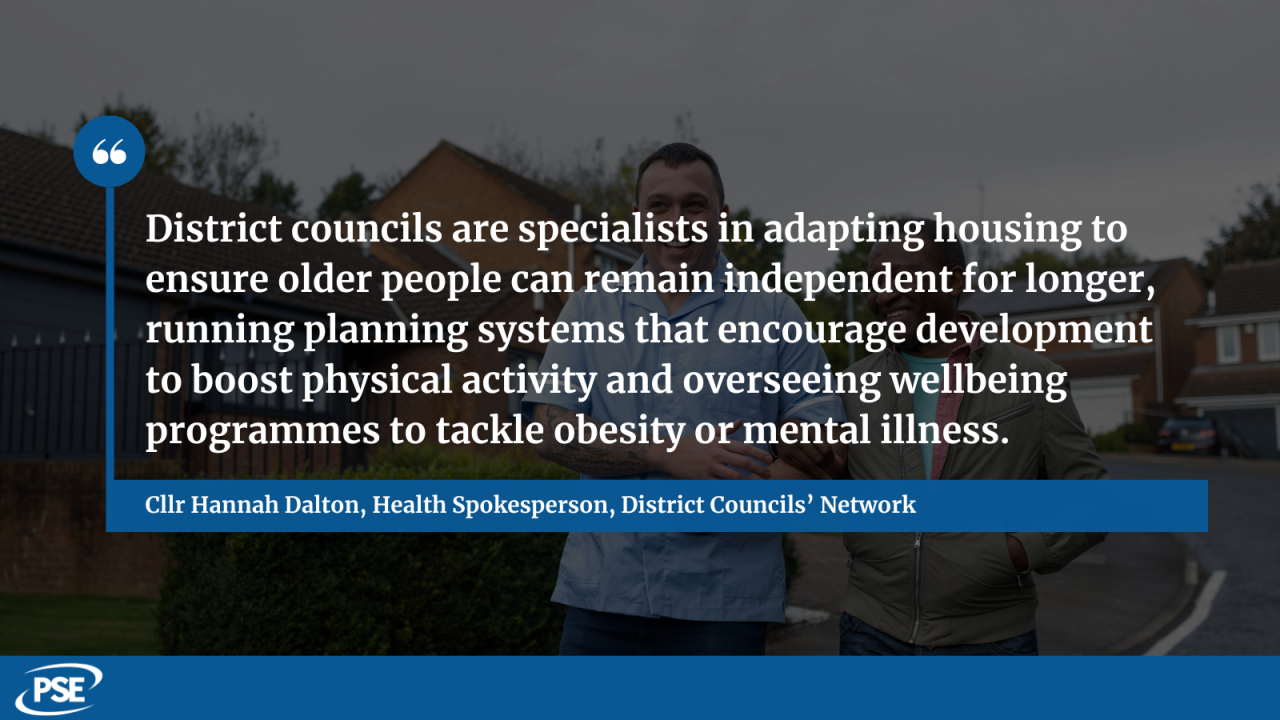District councils across England are being encouraged to take a leading role in reshaping adult social care services as part of the Government’s sweeping local government reorganisation plans.
A new report commissioned by the District Councils’ Network highlights the unique strengths of district councils in delivering preventative care and community-based support.
The report argues that disaggregating adult social care services from county councils—an expected outcome of forming new unitary authorities—presents a rare opportunity to “reset” how care is delivered. It urges early planning, strong leadership, and a place-based approach to ensure success.
District councils’ deep-rooted connections to their communities give them what the report calls a “prevention superpower.” Their existing roles in housing, welfare, and community support make them essential partners in building sustainable, preventative care systems.
“Local connection is a prevention superpower,” the report states. “Districts’ ability to build trust and respond to local context gives them a critical role in early intervention and community-based support.”
The report challenges the assumption that larger adult social care departments are inherently more effective. It finds no clear link between the size of a care system and its overall quality, and warns that larger systems can sometimes introduce inefficiencies.
“There are no economies of scale in delivering personal care,” the report notes. “In fact, larger systems may introduce diseconomies that hinder responsiveness and quality.”
The District Councils’ Network is calling on councils to approach reform with “confidence and curiosity,” highlighting the potential for district-led models to deliver more accountable and preventative care.
District Councils’ Network’s Health Spokesperson, Cllr Hannah Dalton, said:
“This report highlights that district councils have much to bring to the table in designing the future of adult social care – in particular, our unrivalled links our communities and our unwavering focus on prevention.
“District councils are specialists in adapting housing to ensure older people can remain independent for longer, running planning systems that encourage development to boost physical activity and overseeing wellbeing programmes to tackle obesity or mental illness. Following reorganisation, this work should be enhanced to complement and support more traditional social care work.
“Reorganisation should inject a strong sense of place into adult social care services – tailoring them to the unique needs of communities – and it must bring about a greater focus on prevention, which is the only way we can hope to tackle rising demand.
“This is where smaller councils have a natural advantage – with a localised focus on communities and close knowledge of their people and places. These attributes should be essential ingredients of redesigned and reimagined social care services.
“IMPOWER’s report confirms district councils should be confident to use their unique attributes to devise new approaches for adult social care. Services cannot go on as they are, with demand rising faster than budgets, unmet needs and low wages. It would be a mistake to simply carry forward the existing failing model at a wider scale, when a shift in approach towards prevention is desperately required.”

The report provides practical tools and insights to support councils in shaping future models of care that reflect local geographies and community needs. It also stresses the importance of integrating social care with NHS services to remove long-standing barriers and improve outcomes.
As 164 district and 21 county councils prepare to merge into new unitary authorities, the DCN is urging that these new structures retain close ties to communities. The goal is to ensure that public service reform is not only ambitious but also grounded in local insight and trust.
Image credit: iStock



















